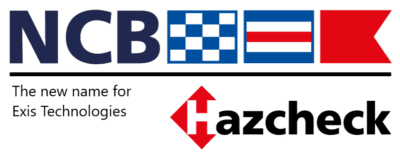TT Talk – Calling for ports/terminals to engage with Hazcheck Restrictions Portal
The containerised supply chain is well-known for its complexity. TT Club is seeking to ‘call out’ any practice that may undermine safety and preclude certain of outcome within its ‘Cargo Integrity’ / #Fit4Freight campaign. Key targets inevitably relate to shipment, handling and carriage of dangerous goods.
This year has seen a significant increase in incidents related to shipment of dangerous goods, including a number of high-profile ship fires. This has rightly given greater attention and urgency to efforts by the lines and initiatives such as the CINS Organisation to improve safety in the maritime supply chain.
One element that has been identified as open to error and inefficiency for processing dangerous goods internationally has been in relation to terminal and port prohibitions and restrictions. Carriers (and therefore shippers) need to take account of a plethora of rules that may exist not just between the original port of loading and the ultimate port of discharge, but also both transhipment and transit ports.
TT Club, together with UKP&I Club, has sponsored the development by Exis Technologies of the Hazcheck Restrictions Portal. At the outset, this was an initiative with several major container shipping lines to help simplify the management of the partner line dangerous goods booking processes.
This internet portal allows participating lines to enter (or upload) and maintain the operator, ship and port restrictions for their operations. Each line or port controls its own data and authorises password-controlled access for partner lines or shippers who can then ensure dangerous goods compliance throughout the intended journey.
It is critical importance that ports and terminals are able to upload and maintain their own data in the portal in order to create a single version of the truth and better serve all their line customers. Data upload (supplied in a defined format, such as Excel) may currently be done free of charge and significantly supports making operations more efficient and safer.
Context for complexity
By way of background understanding, container ship operators, as with most shipping trades, ‘charter’ space in their ships to ‘partner’ lines to offer customers a wider delivery network than that serviced by their own ships alone. Many lines have sharing agreements (VSAs) or ‘slot charter agreements’ with upwards of five partner lines on some routes. This system is essential for economic slot utilisation.
Overall, it is estimated that around 10% of containers on deep sea container ships, upwards of a thousand containers on any of the larger container ships, contain dangerous goods. In certain trades this percentage can be higher. For each of these shipments there are critical checks to be made against the particular voyage legs (voyage segments between ports) for the dangerous goods being shipped.
While lines may restrict or prohibit certain classes of dangerous goods (particularly explosives, radioactive materials and some organic peroxides), and there may be physical limitations on board specific ships in order to comply with regulations (suitable space is finite), it is especially complex to accommodate rules applied by terminals and ports.
Thus, carriers need to take account of the anticipated port calls. Many ports and individual container terminals have strict rules on the classes of dangerous goods that can be loaded, unloaded or transhipped; these restrictions often apply also for cargo intended to stay on the ship while it is in port. Lines cannot afford to have their schedules interrupted because the ‘wrong’ dangerous goods are aboard a ship.
Multiply this process by the thousands of partner line dangerous goods bookings made each day and by the number of ports/terminals in the network, under time pressure, and the scale and complexity of the problem becomes clear. Unlike the world of airline cargo shipments, there is no single database of port and terminal restrictions or indeed operator restrictions. This leaves each shipping line trying to capture and keep its own record of port and terminal restrictions as they change on a frequent basis anywhere in their global network. Enter the Hazcheck Restrictions Portal as a solution to provide a single source of information, securely maintained by the core data owner – whether ship operator, contracting carrier or port/terminal.
Take up the offer
This particular initiative improves safety in the maritime supply chain through accuracy and delivers significant efficiency gains to the industry. TT Club would urge ports and terminals – and particularly global container terminal operators – to share their dangerous goods restriction data and upload to the Hazcheck Restrictions Portal on a regular basis, as required. This will ensure that their container line customers have the best and latest data available on which to rely and make appropriate decisions. We hope that you have found the above interesting.
If you would like further information, or have any comments, please email us, or take this opportunity to forward to any colleagues who you may feel would be interested. We look forward to hearing from you.
Peregrine Storrs-Fox
Risk Management Director
TT Club







